JACOBO ZABLUDOVSKY: WITH GOD AND WITH THE DEVIL
No 72 year old man moved through the crowd agolpada sought to shake his hand before his departure. Between the flashes and the security corps, they could see his gray head and his smile. Always smile. That night of April 2000 Jacobo Zabludovsky appeared for the last time in his newsreel that for almost three decades was called 24 hours. The last 15 minutes of their broadcast were an endless farewell. Tens, perhaps hundreds, of Televisa employees came to their study, to the corridors, to the balconies to say goodbye from anywhere. To applause, who was the headline of the most influential newscast in Mexican history, he could say goodbye to cameramen, editors and make-up artists. He called them by his first name, wished them good luck, to take care of their children, who were no longer unpunctual. He had a few words for everyone. Zabludovsky had been working for the company for over 50 years. He had memorized the names of the watchmen, the secretaries, the phone numbers of the managers, the ages of their children. Twelve years after leaving Televisa, Zabludovsky still remembers that heap of stories that united him with the largest television station in Latin America. His audience remembers those stories of which they were witnesses thanks to him and also those others that knew by the public domain but that he decided to remain silent.
The old bullfighter
The offices of Jacobo Zabludovsky are a redoubt of peace amid the chaos of a boulevard, the Avila Camacho, in permanent construction. The man who was named Knight of the Legion of Honor by the French government in 2004 leaves his comfortable office to escort me from the reception. His building was created by his brother Abraham, one of the most renowned painters and architects in Mexico, and the design of his office is designed to keep at least a third of his personal library, which occupies three walls from floor to ceiling. The rest is not a wall, but a huge window from which you can see the whole of Mexico City.
Before I start the interview, I offer water, coffee and a chocolate. Apologies because the kettle has broken down. At age 84 Zabludovsky looks fragile, with hands stained by the years and legs thinned by the time. But his grave voice, the one that opened the doors on the radio and gave him the stardom on television, is the same, as his lucidity and smile. “Withdraw? But if I’m not a bullfighter, “he says,” I do not need the strength and agility to do my job. ” I will never withdraw. “
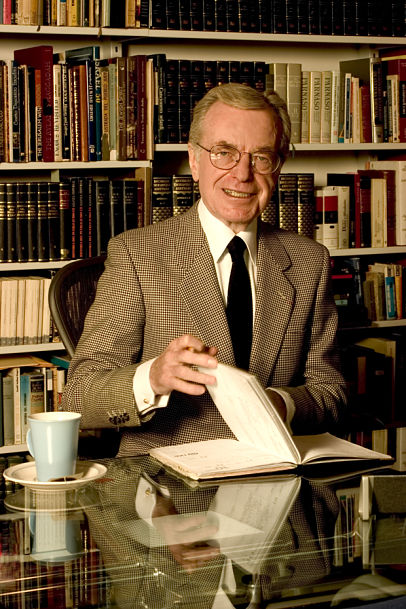
Your memory stays intact and moves around your library with energy. In the midst of 6,000 books, it takes only a few seconds to find one of his favorites about Robert Capa, the founding photographer of Magnum Agency. His huge blue eyes light up like those of a child who boasts his collection of prints. “This volume,” he explains as he brushes the leaves gently, “includes all his photographs of the Spanish Civil War. All of them, “he says, apologizing for thinking he was taking my time.
Speaking of “The death of a militiaman”, his favorite image of the Hungarian photographer, curses the “shotgun shotgun” that brought the soldier designed to hunt rabbits and not to face tanks of the Francoist government. He apologizes again for his “bad words”. And it is that James has courtesy for all, for friends and strangers, for his followers and his critics, whom he never identifies by name but says that “they do journalism according to their own convictions and values, just like me.”
Even when asked Molotov that popular song, ” Que No Te Haga Bobo Jacobo” referring to the bias of the journalist, Zabludovsky welcomes them and other groups can sing whatever they want. “I’ve never heard it, I do not know if it’s offensive, but if it is, it’s in your right to express what you think,” he says.
Express race
Jacobo was already a journalist at age 14. He worked as proofreader in the newspaper El Nacional, then authored a column of gossip in the weekly El Redondel and finally found his place writing newsreels on the network Radio Continental. He was less than 20 years old when he was the news director of the newly created XEX. At 23 he produced and directed the first television news on Channel 4, sponsored by General Motors. In 71, entering at 40, it became the star conductor of the main television channel. He did not abandon those reflectors until his son Abraham resigned his newsreel in 2000.
The day he decided not to continue working for the company without his son, he went out for a drink with his wife Sarita in Polanco when he received the call from the then private secretary of the president, Liébano Sáenz, who summoned him to a meeting with Ernesto Zedillo in his office in Los Pinos. Zedillo and Zabludovsky were and remain old friends. “I’ve known him since before anyone imagined he could be president,” says the journalist. His friend the president told him that he could not resign, that he could not be the eternal tutor of Abraham. But James’s decision was taken. “My son does not need a tutor. And I can resign. I already resigned, “he replied, closing the conversation.
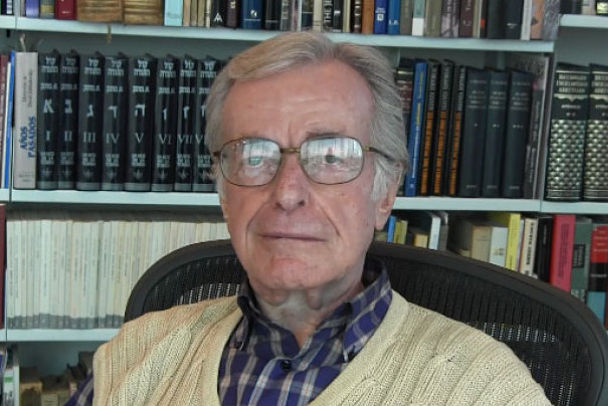
Thus, from one day to the next, he ended his almost 30 years as the builder of Mexican reality: in his best times was the reference. There was no greater proof of credibility than “Jacobo said.” “The Mexicans saw it religiously because it was the only way to find out what was going on. Of course an impenetrable confidence had been created, “says Raúl Trejo Delarbre, columnist in the magazines Emeequis and Zócalo, and coordinator of books such as Televisa, the Fifth Power and Televisa Networks.
Antonio does not want his surnames to be published because he does not believe in the media, although he worked for one for 18 years. He was one of the 24 hour technicians. But with the departure of Jacobo was one of the many employees dismissed when the team of the new driver entered. He does not hold a grudge against James, although he has lost his job because of his departure; Unlike. “He was always the first to arrive, the most prepared. He knew the name of his entire team and spoke to us with the same kindness, no matter who we were. I respected everybody’s work and I recognized you, even if all you did was lift a cable, “he says. Antonio does not remember the Zabludovsky newsreel in the heaviest moments, such as the 1988 elections or the murder of students in the 1960s and 1970s, but when Jacobo interviewed Cantinflas and María Felix. “No one knows how to ask questions like him,” says the man who now repairs household appliances and still has Jacobo as an informational reference, but since his radio news program De una a tres, by Radio Red, the one with the highest audience in that timetable according to Ibope company, dedicated to measuring and analyzing media audiences.
The Silence of James
In the television Jacobo did not impose its voice. She was the only one. Researcher Trejo Delarbre denies that the presenter was the official spokesman for the regime. “It was the only national news, it had no competition, of course that makes it the most visible face. The space of action for journalists in general at that time was very small. Zabludovsky did his job, was not a news reader, was a real reporter and was the best known. He suffered censorship, like everyone else. Does that make him a spokesperson? Of course not, “he says in an interview.
The 24-hour news program was born in 1971 and was the first of its kind. No other company had its production capacity and there was not even another competitive television network. It was until 1993 that Tv Azteca and his “Informative Force” were born. By then, Zabludovsky had taken 22 years of advantage and recognition from the public. “It was not the official communicator,” Trejo says, “I was just the only one.”
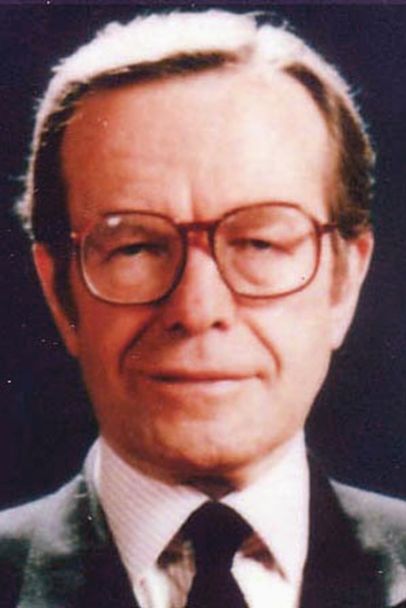
But in the seventies there were other journalists who in other media tried to end the official versions. Like the Excélsior directed by Julio Scherer, that was taken by a group of cooperativistas incited by the government of the then president Luis Echeverría, constant object of the critics of the newspaper. On the night of July 1976, when journalists were expelled from their facilities, Jacobo, “servile to Echeverria and all the PRI presidents who came after” – according to Vicente Leñero in his book The Journalists – said that the administrative change Was the result of an assembly that was carried out in order and complying with the statutes of the cooperative. He also said that they had found weapons in the offices of Scherer from the Sandinista guerrilla in Nicaragua with which the journalist had ties. It was the end of “an era of yellow journalism and destabilizing our democracy,” he said in front of the cameras.
No, Jacobo did not come to the defense of his colleagues, nor did other journalists. “It is likely that Zabludovsky kept quiet because those were the rules and they did not apply only to him,” says Trejo.
On the night of October 2, 1968, Jacobo opened his news program on Channel 4, saying “today was a sunny day”. It certainly was not for the thousands of students who demonstrated in the Plaza de Tlatelolco. But television, radio and newspapers only spoke of armed youths who wanted to boycott the Olympics. Even today, the number of dead and missing are estimates. The next day Jacob received a call from President Gustavo Diaz Ordaz, who demanded the use of a black tie that he interpreted as a symbol of mourning. “Mr President, I have been wearing a black tie for years,” the reporter replied. And it was true. The state monitored every movement of those who dedicated themselves to inform and marked the step. There was no room for dissent.
“Have you ever had to put up any expressions of disagreement like that?”
-Always. In all cases the journalists operated in the margin of possibility. Mexico was a country where the three powers were in the hands of one party, but also the other powers: the press was dominated, the unions, the church, the business groups, the economy. Within that absolute power of a single party, the journalistic possibility was marginalized.
“Did you ever lie on your newsreel?”
-My team and I always try to do in-depth research, collate information. In some cases we did not have that option, it was impossible because the sources were closed because nobody answered your questions, because they also injected us with self-censorship.
“So you were forced to lie?”
“I was forced to keep the official version, because our possibilities for research on some subjects were minimal. And that was suffered by all journalists, not just us.
– Do you regret any special coverage?
“Regrets always happen, whether or not you are a journalist. But one can not whine all the time, or it can happen to the woman of Lot who looked back and became a statue of salt. You have to look forward and take the experience to make it better in the future.
-Does it seem unfair to be identified as the spokesman for the PRI regime?
“It’s unfair, but it’s understandable because he was the most notorious journalist, the most prominent. It always happens that you identify a certain moment with a certain person, just because there it was. I understand it although I do not share it.
Your Home City
On the morning of September 19, 1985, when Mexico City was shaken by the worst earthquake in its history, Jacobo Zabludovsky left his wife at home and went out to find the news among the ruins. He did not know, but he was the only journalist who managed to broadcast for the XEW through a phone installed in his car. During his 12 hours of recording there was only a long silence. It was around nine o’clock in the morning when he arrived at the Televisa Chapultepec building which was then collapsed. He knew who had died. He had hired them, assigned them their schedule, knew they were there at 7:19 in the morning when the earth broke. For a few seconds the guilt made him flinch. “It was my family, I lost 100 members of my family. I could not say anything, I just started to cry in silence. Then I gained consciousness that I had to keep on reporting, that people needed information. “
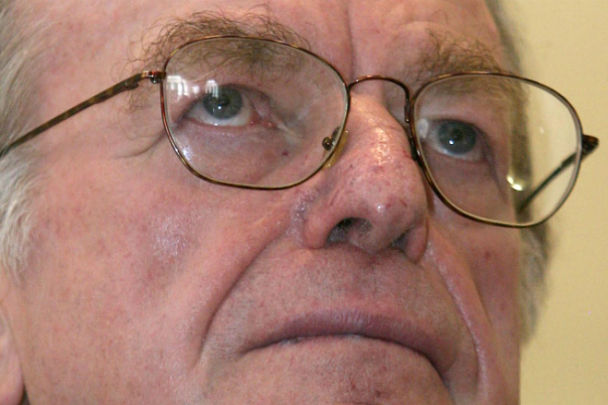
That day reminds him as the most difficult of his career. “My city was destroyed,” he says. Over the years, his relationship with the DF became more intimate, especially after joining the Advisory Council for the Rescue of the Historic Center, along with Cardinal Norberto Rivera, historian Guillermo Tovar and businessman Carlos Slim, who counts among His most endearing friends.
Jacobo has paid special attention to La Merced, the neighborhood that saw him grow. Here, where most of the streets are occupied by prostitutes and street vendors, Zabludovsky’s name is a legend. In the street of San Jerónimo, the neighborhood that was its first home no longer exists, but Rosario Mendez remembers with admiration the family formed by David Zabludovsky and Raquel Kraveski. He was selling scraps of cloth, but he gained his place as a merchant. “Everyone was blond and light-eyed, you could not forget something like that,” says the 75-year-old woman. Remember also the two little boys always carrying a pile of books. “They were very hardworking Jews and very studious. That was always noticed. No one could think about what they were going to become, but it was clear that they were not going to age in these directions. ” Now Jacobo lives very far, but he never forgets his neighborhood and always defends its restoration and conservation.
“The streets of my childhood go with me everywhere,” says the journalist. And it was these streets that aroused his tireless curiosity and his voracity as a reader. For many years the Zabludovsky family went through economic hardship, but the journalist fondly remembers his walks for Donceles in search of used books that were within his reach. Jules Verne was his first author, but it was Dostoevsky who forever anchored him to reading. “It became a habit rather than a habit. My wife Sarita wanted to get me out of my house with all my tons of books, “he says with a laugh.
With God and with the devil
Something has Jacobo Zabludovsky that his conversations seem like summer walks that one never wants to finish. In his offices, he poses for the photographer while he counts on his next trip to Madrid, where there will be a meeting of the council of the Prado Museum of which he is part. He then tells of his friendship with Juan Soriano, who encouraged his taste for art. He weaves that one with another story and then with an anecdote that ends with the day he bought a book of bullfighting of more than 150 years of antiquity.
-You, so fond of bulls, what do you think of activists who want to ban bullfights?
“That they are absolutely right. It’s a very cruel sight. If I were not that fond of you, I’d join your cause.
“Have you ever tried bullfighting?”
-Yes, once. I never do it again. Even my wife would not let me. I never felt so much terror like that day. Well yes, I was very scared when the cancer gave me its third goring.
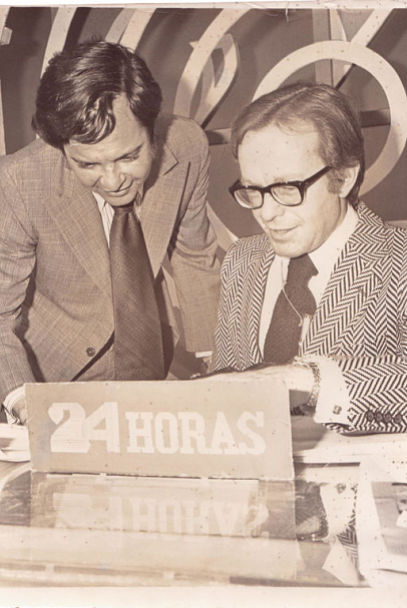
Jacobo already speaks with great ease of the disease that attacked him three times and faced him with the death. He could not concentrate enough to read, he could not carry his grandchildren, he could not fend for himself and he had to wear a diaper. “It was a painful and terrible time, but perhaps the most valuable. Because then I knew what and who were important. The idea of death changed my life, “he says. Although it seems the opposite, Zabludovsky has many companions, but few true friends. Of the enemies he does not speak, although he assures us that we all have them. “It seems like I have a very good relationship with everyone, but it’s because nobody talks about bad relationships,” he laughs.
Jaime Almeida was part of Jacobo’s team of reporters between 1969 and 1975. In six years, he says, he was never pressured to “twist reality” or get issues off his agenda. “There was censorship, that’s for sure, but my work was always respected and defended by Zabludovsky,” he says. His former boss remembers him as a teacher, like the one who taught him to collate information and look where he least expected. So proudly remember the great stories they covered together, such as the interview with Joel David Kaplan, the inmate who escaped in a helicopter and was one of the most wanted by the Mexican government; Or the first report on drug trafficking made by his partner Fernando Alcalá in 1974. “It was investigative journalism, not scandal. James laid the foundations for what was done afterwards and which has been greatly improved as more freedoms are had. But to say that Jacobo was the official spokesman is an injustice and a great sign of ignorance. They say it because they do not know their career, “he says. Jacobo will have stopped many things, but left to his public other great covers. He was the first journalist in the world who interviewed Che Guevara and Fidel Castro after the Cuban revolution; The only Mexican reporter who was with Dalí as well as Gabriel García Márquez and Octavio Paz. Almeida remembers the hardness with which he reviewed his work, the times that made him repeat a word every time he wrote badly. “He was relentless,” he said, and thanked him for years of having forced him to search for at least five sources before taking a fact for granted. He further recalls Zabludosvky’s support for the organizers of the Avándaro festival, which was planned from his offices to be recorded and broadcast on his Sunday program. “Every night in his news program gave a note on the progress of the festival. He convinced Azcárraga to do all the paperwork and put the equipment. If it were not for Jacobo, Avándaro would not have existed, “says Almeida, a journalist who has written about music for almost four decades.
Heriberto Murrieta also worked on the newsreel of Jacobo; Since the decade of the eighties. He is one of his most famous disciples. He remembers, now between laughter, the day he broke three versions of his interview with Cantinflas. “I could not get on my nerves anymore, I was afraid to take her. But to the fourth version I learned, I realized that it could improve that note. That you can always. He further says that the greatest value of “the master” is that he offers “an intelligent friendship. The same helps you, but questions you to help you become clearer. He always treats you with respect and preserves, above all, your confidence, “he says.
Zabludovsky agrees. “I am not left or right, I have no friends for political parties or for ideologies. I get along well with God and with the devil. If there is reciprocal affection and trust, people perceive it, “he says. Whoever was identified as a symbol of censorship, is now one of the few journalists who give space to Andres Manuel López Obrador and one of the most beloved and best treated in La Jornada, the left-wing newspaper par excellence.
“I respect this newspaper, I love Carmen Lira, its director, and I have become friends with Andres Manuel. I gave him space when no one else wanted to do it because it was my responsibility as a journalist, not because I agreed with what he said. Absolute objectivity is impossible, but I always try to get closer, “he says.
At the end of the interview, Jacobo escorts me to the exit. In the corridors I make a quick historical recount of the transformations that have suffered their offices. Say hello to the watchman Alberto. Wait at my side for the elevator to come and apologize once more, now for the delay of the “old apparatus.” People come up, greet him and he smiles, as always. His news has changed, but James remains the same.
- Blog
- Comments Off on JACOBO ZABLUDOVSKY: WITH GOD AND WITH THE DEVIL
